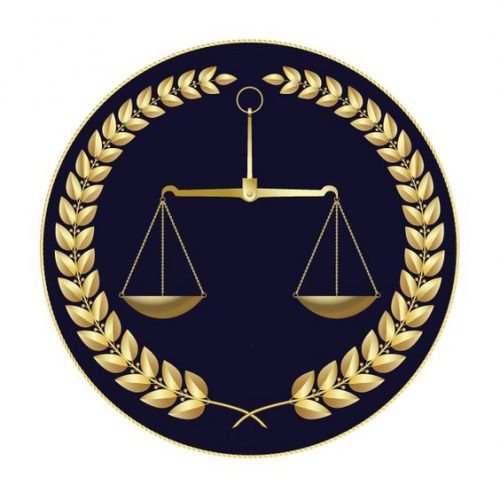Best Renewable & Alternative Energy Lawyers in Santa Cruz
Share your needs with us, get contacted by law firms.
Free. Takes 2 min.
List of the best lawyers in Santa Cruz, Bolivia
About Renewable & Alternative Energy Law in Santa Cruz, Bolivia
Renewable and alternative energy is a rapidly growing sector in Santa Cruz, Bolivia. The city and surrounding region possess significant solar, wind, and biomass resources, making it a strategic location for clean energy investment. National and local governments are actively encouraging the transition from fossil fuels to renewables to support the country's sustainable development goals and to address energy demand in a growing economy. Legal frameworks are evolving to support energy generation, distribution, and use from clean sources while protecting the rights of investors, landowners, and communities.
Why You May Need a Lawyer
There are several situations where consulting a lawyer experienced in renewable and alternative energy law can be vital in Santa Cruz:
- Starting or investing in a renewable energy project and navigating regulatory requirements
- Securing permits, environmental licenses, and land use rights
- Negotiating power purchase agreements or contracts with government agencies or private parties
- Ensuring compliance with local taxes, incentives, and tariff structures
- Understanding and protecting intellectual property related to new technologies
- Resolving disputes concerning land acquisition, community consultation, or environmental impacts
- Addressing issues regarding grid connection and energy distribution
A lawyer can help ensure that your project is compliant with the latest regulations, that risks are minimized, and that your rights and investments are safeguarded.
Local Laws Overview
Santa Cruz, like the rest of Bolivia, operates within both national and departmental legal frameworks governing renewable and alternative energy projects. Key aspects include:
- National Energy Policy: Bolivia's national government provides overarching laws and incentives to promote renewable energy as part of its energy matrix diversification plan. This includes support for solar, wind, biomass, and small-scale hydroelectric projects.
- Environmental Regulation: Any energy project must undergo environmental impact assessments and comply with laws governing environmental protection, waste management, and emissions.
- Land Use and Permitting: Projects often require coordination with local municipalities in Santa Cruz for zoning, land rights, and construction permits.
- Incentives and Financing: The government has created financial incentives, such as tax breaks and special tariffs, for renewable energy. Specific rules can vary at the local level.
- Community and Indigenous Rights: There are strict regulations ensuring local and indigenous communities are consulted and benefit from projects affecting their lands.
- Grid Access: Rules determine how renewable projects can connect to the public electricity grid, including pricing and technical requirements.
Staying informed about these local and national laws is crucial for the success of any project or investment.
Frequently Asked Questions
What types of renewable energy projects are most common in Santa Cruz?
The most common projects include solar farms, wind turbines, biomass plants, and small-scale hydroelectric developments, thanks to the region's favorable climate and geography.
What permits do I need to start a renewable energy project?
You will generally need environmental clearance, construction permits, land use rights, and possibly energy generation licenses from local or national authorities depending on project size.
Are there incentives for investing in renewable energy in Santa Cruz?
Yes, there are national and sometimes local incentives such as tax exemptions, lower import duties for equipment, and preferential tariffs for selling energy to the grid.
Can foreign companies invest in renewable energy projects?
Yes, foreign investors are welcome to participate, but they must comply with Bolivian laws regarding company formation, investment, and property ownership.
How is community consultation handled in renewable energy projects?
Bolivian law requires prior consultation and sometimes benefit sharing with local and indigenous communities if their lands or rights could be affected by development.
How long does it take to get project approval?
The process can vary but often takes several months to a year, depending on the project's complexity and the number of government agencies involved.
What are the main regulatory bodies overseeing renewable energy?
At the national level, the Ministry of Energy and the National Electricity Company (ENDE) oversee energy policy and regulation. Local municipal authorities are also often involved in licensing and permitting.
What are the environmental requirements for renewable energy projects?
Projects must complete environmental impact assessments and obtain approval from the Ministry of Environment and Water, ensuring that the project does not harm the environment or local communities.
Can individuals or businesses sell electricity back to the grid in Santa Cruz?
Yes, rules for net metering exist but may depend on the capacity and technology. Approval from ENDE or the relevant distributor is required.
What legal challenges do developers most commonly face in Santa Cruz?
Challenges include complex permitting procedures, community negotiations, uncertainties about incentive qualification, and ensuring ongoing compliance with evolving environmental and energy laws.
Additional Resources
For more guidance and support, consider consulting the following:
- Ministry of Energy of Bolivia (Ministerio de Energías)
- Santa Cruz Departamental Government energy and environmental agencies
- National Electricity Company (ENDE)
- Ministry of Environment and Water (Ministerio de Medio Ambiente y Agua)
- Local business chambers for renewable energy investors (Cámara Boliviana de Energías Renovables)
- Universities and research centers with specializations in renewable energy
- Non-governmental organizations focusing on sustainable development and indigenous rights
Next Steps
If you are considering a renewable or alternative energy project, or need legal advice in Santa Cruz, Bolivia, here is how to proceed:
- Define your project goals and gather all necessary information about your intended technology, location, and investment scale.
- Contact a lawyer or law firm with expertise in Bolivian energy, environmental, and business law, particularly with experience in the Santa Cruz region.
- Consult relevant governmental agencies early to clarify permitting, incentives, and project requirements.
- Engage with local communities and stakeholders as soon as possible to build support and address potential concerns.
- Stay updated on changes to local and national policies, as regulations in this sector can evolve rapidly.
Having the right legal support ensures your project moves forward efficiently, minimizes risks, and adheres to all applicable laws, benefiting both your investment and the community.
Lawzana helps you find the best lawyers and law firms in Santa Cruz through a curated and pre-screened list of qualified legal professionals. Our platform offers rankings and detailed profiles of attorneys and law firms, allowing you to compare based on practice areas, including Renewable & Alternative Energy, experience, and client feedback.
Each profile includes a description of the firm's areas of practice, client reviews, team members and partners, year of establishment, spoken languages, office locations, contact information, social media presence, and any published articles or resources. Most firms on our platform speak English and are experienced in both local and international legal matters.
Get a quote from top-rated law firms in Santa Cruz, Bolivia — quickly, securely, and without unnecessary hassle.
Disclaimer:
The information provided on this page is for general informational purposes only and does not constitute legal advice. While we strive to ensure the accuracy and relevance of the content, legal information may change over time, and interpretations of the law can vary. You should always consult with a qualified legal professional for advice specific to your situation.
We disclaim all liability for actions taken or not taken based on the content of this page. If you believe any information is incorrect or outdated, please contact us, and we will review and update it where appropriate.














